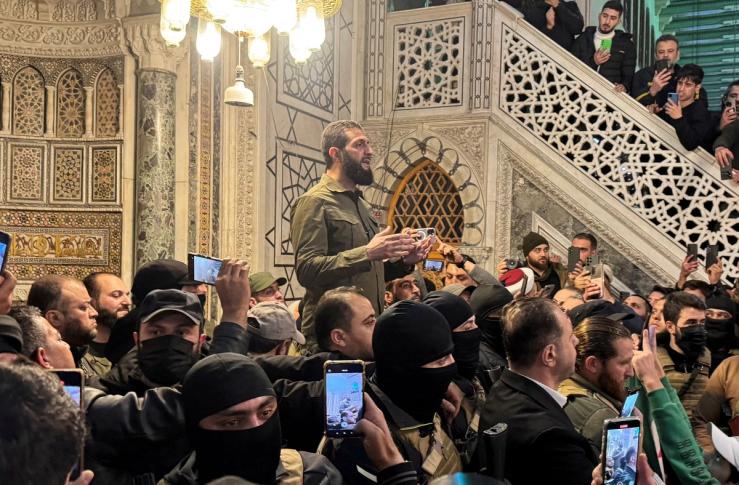Like everyone else in the world, the Gulf is still wrapping its head around Syria’s new realities, and the fall of the 54-year-old Assad regime. While its collapse is worth celebrating, Gulf countries share the same sentiment as others: Will what comes next be any better?
There is no love lost for former President Bashar al-Assad, now in exile in Moscow, among Gulf leaders, especially from Saudi Arabia and Qatar. Both opposed him since the start of the uprising in 2011. Syria was expelled from the Arab League, and even after it was reluctantly reinstated, it continued its violent repression and sponsored a drug trade that destabilized the region. As Qatari Prime Minister Sheikh Mohammed bin Abdulrahman Al Thani recently noted, Assad failed to seize opportunities to reconcile with his people, resettle refugees, or rebuild trust.
As the horrors of Assad’s dungeons and torture chambers emerge, it’s reasonable to expect that whoever comes next cannot possibly be any worse. Recent history, however, doesn’t support this theory.
In 1979, the iron-fisted Shah of Iran was replaced by Ayatollah Ruhollah Khomeni, and Iran became the Islamic Republic that actively exported its revolution. In 2003, the removal of the murderous Saddam Hussein regime paved the way for Iranian hegemony in Iraq and subsequently gave birth to ISIS. The 2011 fall of Hosni Mubarak briefly allowed the Muslim Brotherhood to take control of Egypt, before President Abdel Fattah el-Sisi regained control. And in Libya, we are still living the aftermath of the killing of madman Moammar Gadhafi.
In Syria, the rise of Hayat Tahrir al-Sham (HTS) — a militant group on several terror lists — as the dominant force behind the overthrow of Assad raises similar concerns. HTS leader Ahmed Al Shara (until recently known as Abu Mohammad Al Golani) is certainly sending all the right assurances, so far. Through international media appearances and messages to domestic audiences, he has promised to respect minority rights, peace, and not to impose strict Islamic dress codes on women. This is noteworthy, especially given Syria’s diverse religious fabric, which the Assad regime long exploited to maintain power.
Is he sincere? Will he, and can he, keep his promises? Only time will tell. For now, Gulf states seem willing to give the benefit of the doubt. This was certainly the tone in the Saudi Ministry of Foreign Affairs statement, which expressed its satisfaction with the “positive steps taken to ensure the safety of the brotherly Syrian people, to prevent bloodshed, and to preserve Syria’s state institutions and resources” — a nod to the wise decision HTS has taken not to dismantle government institutions, a mistake the US made after it took control of Iraq in 2003.
If HTS is sincere in its intent to rebuild Syria, it will need substantial support: humanitarian, political, and capacity building. Gulf countries are likely to engage because the region can’t afford another failed state or perpetual war. My reading is that while the mood in the Gulf is to proceed with caution at this stage, support will grow as long as HTS and the new government in Syria continue signaling an intention to bring unity, stability, and peace to their country.
Faisal J. Abbas is an award-winning journalist and Editor-in-Chief of Arab News.

